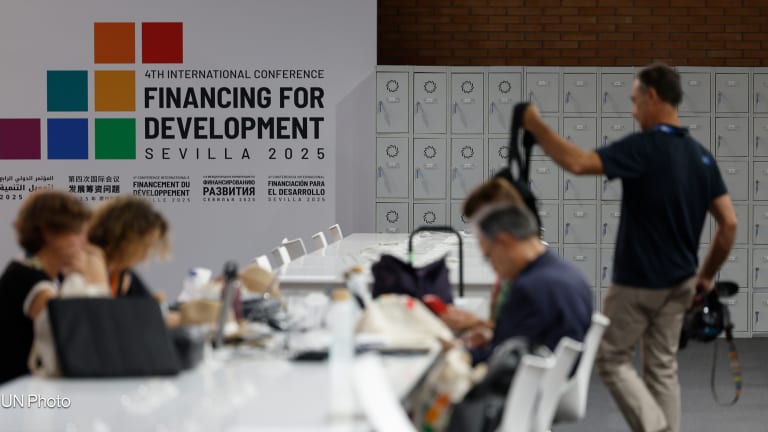The World Bank’s latest review of poor countries, which was released last week, says only 35 of the 63 countries the bank classified as low-income economies in 2006 remain in that category this year. Two think tank experts says the main takeaway from this reclassification is quite simple: “even the poorest countries can get rich – and that’s a good news story.”
Chales Kenny of the Center for Global Development and Andy Sumner of the Institute of Development Studies argues that the reclassification of the 28 countries from the low-income bracket is a reason for optimism to “come back into fashion.”
“What shall we take from this [reclassification]? Three things,” the two write on the Guardian’s Poverty Matters blog. “First, consider the good news that there are fewer poor countries around. Not least, it suggests that public and private investment (including aid) can help even the poorest countries get rich(er). This is one more reason why optimism should come back into fashion.”
But the recent review also indicates a need to rethink the World Bank’s country classifications, Kenny and Sumner add, explaining that the classifications are based on a formula that no longer reflects current realities.
“We know that middle-income countries now account for most of the world’s population living in absolute poverty. And the data suggests these aren’t just poor countries by another name - they really are better off than low-income countries, not only in terms of average income but by human development and other development indicators too,” the two argue.
A third takeaway is how anti-poverty efforts increasingly become about domestic politics as a country develops its own resources, Kenny and Sumner say.
“Not surprisingly, this means inequality is rising up the agenda,” they explain. “New research shows that the emerging middle classes may have a big role to play. Who they side with - the poorest or the economic elite - will determine what kind of development emerges in the new middle income countries.”
Read more development aid news online, and subscribe to The Development Newswire to receive top international development headlines from the world’s leading donors, news sources and opinion leaders – emailed to you FREE every business day.




